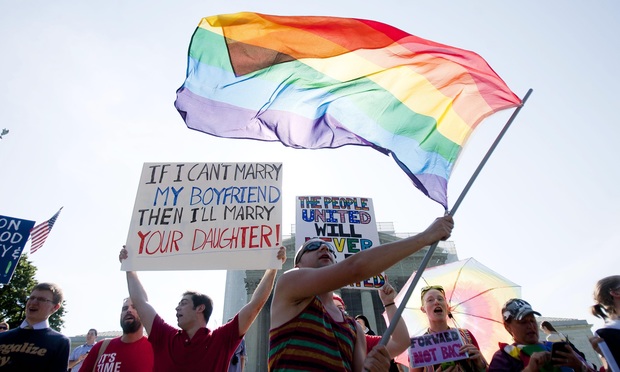The U.S. Supreme Court in June ruled in a 5-4 decision that the equal protection guarantee provided by the Fourteenth Amendment to opposite-sex marriages extends to same-sex marriages. The opinion in Obergefell v. Hodges, authored by Justice Anthony Kennedy, holds that “same-sex couples may exercise the fundamental right to marry in all states” and that there is “no lawful basis for a state to refuse to recognize a lawful same-sex marriage performed in another state on the ground of its same-sex character.”
While the Supreme Court’s opinion goes on at length about the dignity inherent in the ability to marry the partner of one’s choosing, the court avoids determining whether lesbian/gay/bisexual (LGB) Americans are a protected class, or what level of scrutiny courts should apply when evaluating laws that seek to differentiate based on sexual orientation. This lack of clarity will no doubt figure prominently in subsequent litigation involving the many other laws that continue to single out LGB citizens.
This content has been archived. It is available through our partners, LexisNexis® and Bloomberg Law.
To view this content, please continue to their sites.
Not a Lexis Subscriber?
Subscribe Now
Not a Bloomberg Law Subscriber?
Subscribe Now
LexisNexis® and Bloomberg Law are third party online distributors of the broad collection of current and archived versions of ALM's legal news publications. LexisNexis® and Bloomberg Law customers are able to access and use ALM's content, including content from the National Law Journal, The American Lawyer, Legaltech News, The New York Law Journal, and Corporate Counsel, as well as other sources of legal information.
For questions call 1-877-256-2472 or contact us at [email protected]






